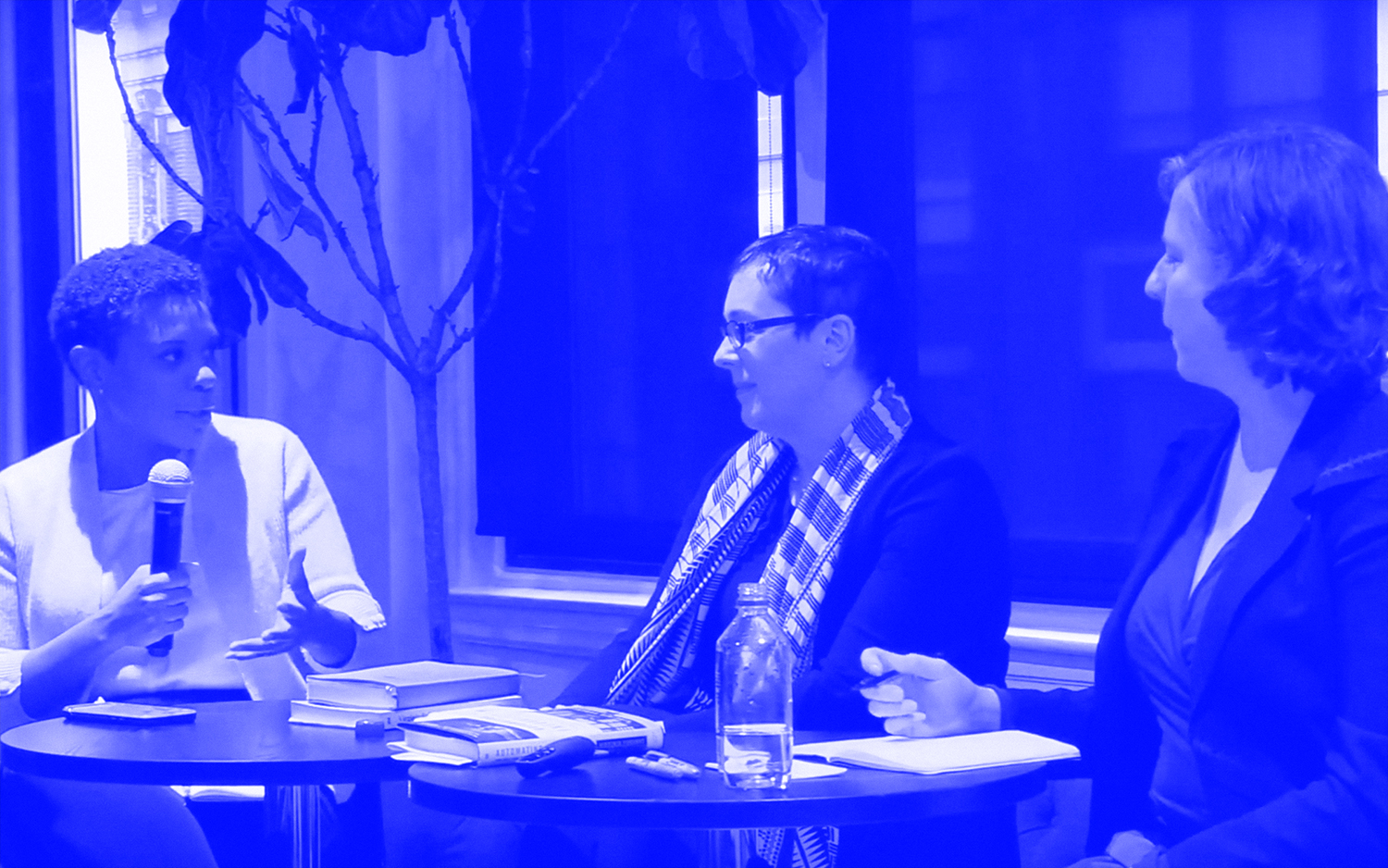Virginia Eubanks discusses her most recent book Automating Inequality: How High-Tech Tools Profile, Police, and Punish the Poor.
Eubanks systematically shows the impacts of data mining, policy algorithms, and predictive risk models on poor and working-class people in America. The book is full of heart-wrenching and eye-opening stories, from a woman in Indiana whose benefits are literally cut off as she lays dying to a family in Pennsylvania in daily fear of losing their daughter because they fit a certain statistical profile.
The U.S. has always used its most cutting-edge science and technology to contain, investigate, discipline and punish the destitute. Like the county poorhouse and scientific charity before them, digital tracking and automated decision-making hide poverty from the middle-class public and give the nation the ethical distance it needs to make inhuman choices: which families get food and which starve, who has housing and who remains homeless, and which families are broken up by the state. In the process, they weaken democracy and betray our most cherished national values.
Powerhouses Alondra Nelson and Julia Angwin join Eubanks for a discussion on data-based discrimination.
Virginia Eubanks is an Associate Professor of Political Science at the University at Albany, SUNY. In addition to her latest book, Automating Inequality: How High-Tech Tools Profile, Police, and Punish the Poor, she is the author of Digital Dead End: Fighting for Social Justice in the Information Age and co-editor, with Alethia Jones, of Ain’t Gonna Let Nobody Turn Me Around: Forty Years of Movement Building with Barbara Smith. For two decades, Eubanks has worked in community technology and economic justice movements. Today, she is a founding member of the Our Data Bodies Project and a Fellow at New America.
Alondra Nelson is president of the Social Science Research Council and professor of sociology at Columbia University. A scholar of science, technology, and social inequality, she is the author most recently of The Social Life of DNA: Race, Reparations, and Reconciliation after the Genome. Her publications also include Body and Soul: The Black Panther Party and the Fight against Medical Discrimination; Genetics and the Unsettled Past: The Collision of DNA, Race, and History; and Technicolor: Race, Technology, and Everyday Life.
Julia Angwin is an award-winning investigative journalist at the independent news organization ProPublica. From 2000 to 2013, she was a reporter at The Wall Street Journal, where she led a privacy investigative team that was a Finalist for a Pulitzer Prize in Explanatory Reporting in 2011 and won a Gerald Loeb Award in 2010. Her book, Dragnet Nation: A Quest for Privacy, Security and Freedom in a World of Relentless Surveillance, was published by Times Books in 2014. In 2003, she was on a team of reporters at The Wall Street Journal that was awarded the Pulitzer Prize in Explanatory Reporting for coverage of corporate corruption. She is also the author of “Stealing MySpace: The Battle to Control the Most Popular Website in America” (Random House, March 2009).
About Databites
Data & Society’s “Databites” speaker series presents timely conversations about the purpose and power of technology, bridging our interdisciplinary research with broader public conversations about the societal implications of data and automation.


